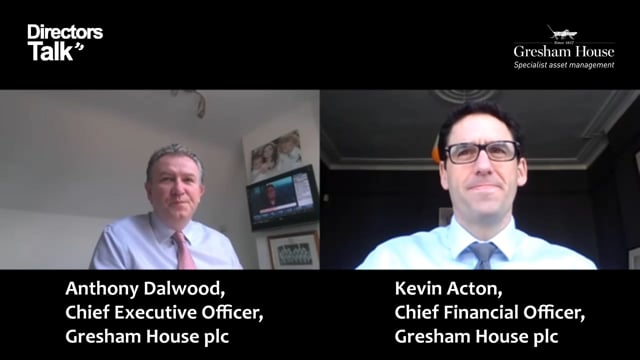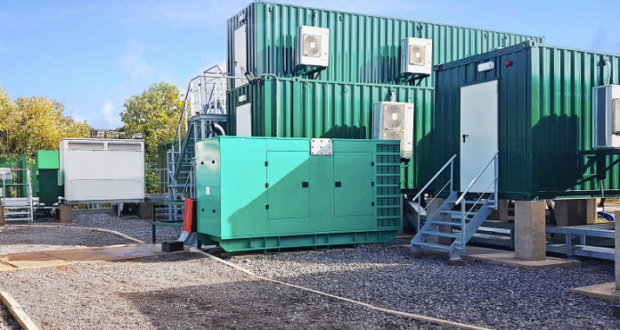Gresham House plc (LON:GHE) Chief Executive Officer Tony Dalwood caught up with DirectorsTalk for an exclusive interview to discuss the new investment manager contract with SEC, their partnership with Aberdeen Standard Investments and what the mandate means for the company going forward.
Q1: We’ve seen today that GHE has been awarded a new contract to become Investment Manager of SEC plc, could you tell explain to us the detail of the deal?
A1: Yes, it’s very exciting. We had within our business a strategic public equity unit, a very specialist way of investing in public companies through private equity techniques and the philosophy of looking at things through the lens of a private equity investor.
Strategic Equity Capital (SEC) is one of the larger vehicles that’s listed on the stock exchange as an investment trust and was launched in 2005 when actually I was at SVG or Schroder Ventures, back in those days. It is being taken on as a management contract by the company and into the joint venture that we have with Aberdeen Standard in order to grow this vehicle over the long term and also to enhance some of the resources that go with GHE that we can put around it. The two current fund managers, Adam and Jeff, they’ll be coming over as well to our platform in due course.
So, all in all, bringing in the Strategic Equity Capital mandate into our strategic public equity unit is a very exciting time as we grow that area. We think is an area where you can get significant outperformance and that’s shown from the track records that I have of the teams that have been involved with over the last 20 odd years in this specialist area.
Q2: Can you explain for us what the SPE style of investing is and why is it so important when considering this mandate?
A2: The SEC style is a combination of private equity and public equity, what one is trying to do is take the good things around private equity when looking at smaller companies. Smaller companies are illiquid, and increasingly so with different regulatory pressures coming along and they require a certain difference in the way you approach them, the way we like to phrase it is they are like private companies with a quote.
So, there’s a high level of engagement with the underlying companies, you look at cash flows and low valuations and you look for catalysts on the way out, we like to describe it as there’s a circle of confidence of the characteristics that have gone into making successful investments over the last 20 years or so.
So, high engagements, private equity lends are some of the characteristics and the performance over that period of time across this investment approach is clear that does add significant alpha during the investment period.
Q3: What is special about the partnership between Gresham House and Aberdeen Standard Investments?
A3: Aberdeen Standard has identified illiquid in alternative areas of the areas they would like to grow in considerably in the future and they selected us having done research around the market in this area of illiquid investments in public companies. We’re obviously very pleased that they had selected us to partner with.
That partnership here will lead to a joint venture company and the strategic equity mandate will go into that joint venture company. They will be focussed very much on their marketing and distribution capabilities which of course they have considerable amounts of in order for us to focus on the investing side and managing the investments and in the long term, to grow this area of the market.
Q4: Finally, what does this mandate mean for Gresham House going forward?
A4: It’s further evidence that we have 5 platforms that we can grow, we have the forestry, renewables and housing infrastructure platform all growing in the real asset space and then we have in our strategic equity unit, the private equity in the Baronsmead Venture Capital Trust as well as the equity funds that we have under Richard Staveley and Ken Wotton.
So, there’s further evidence of organic growth in the company and despite the environment that we live in, which is a challenging one given both the oil price situation and the COVID situation, we’re very very optimistic that this just gives more evidence that we can grow this business organically over the longer term.









































